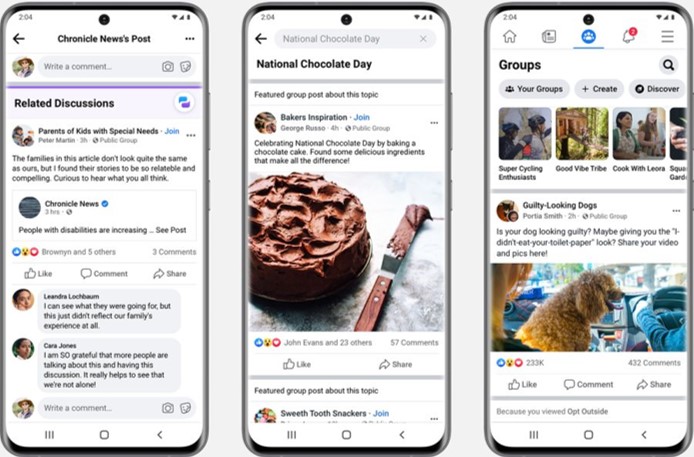Facebook Groups allows friends, acquaintances, or complete strangers to discuss and share information about topics both narrow and broad. Pages and Groups are effective at connecting with fans of your business but they serve different purposes.
Pages are public facing profiles that anyone can access. These are more promotional. Comparatively, Groups are created around areas of interest and can be public, private, or invite-only.
Businesses can participate in Facebook Groups through a few different methods. Networking with brand ambassadors is typically only used for large brands but can be useful for smaller brands in some niche situations. In general, businesses should stay away from using Groups for selling products. However, there are Groups specifically for this purpose often referred to as a “for sale group”. An excellent, universal use of Facebook Groups is creating influence by helping users solve problems or to give them advice.
Now that we know what Facebook Groups are and the ways they are used, let’s look at some best practices for creating a Group!
Set Group rules. These help ensure your Group stays on topic. Some examples include no spam, no buying or selling goods, and so on.
Prioritize your Group’s discussions. Your group is only worthwhile if people are consistently engaging and interacting within it. Keep the conversation going and introduce new conversations to increase or maintain engagement.
Don’t monopolize the conversation. As a Group administrator, you want to get the discussion going but you don’t want it to be all about you. Make sure others’ voices are at the forefront of the conversation.
Avoid link-dropping and direct selling. You shouldn’t directly push your products in your Group. If a user is interested in your products or services, encourage a one-on-one conversation outside of the group via Facebook Messenger, a phone call, or email.
Optimize content for engagement. Groups naturally appear higher in the feed. The more active and engaged your community is, the better. Use polls, surveys, quizzes, and ask open-ended questions in your posts to encourage response.
Experiment with different post types. Variety within your Group’s interactions with you helps maintain engagement in the Group.
Continually work to improve your Group. Consider the opinion of the members of the Group. What are members often talking about? What’s a common pain point for members?
Latest Facebook Group Features Update: February + March 2021
The 6 Sweetest Facebook Advertising Features Right Now


